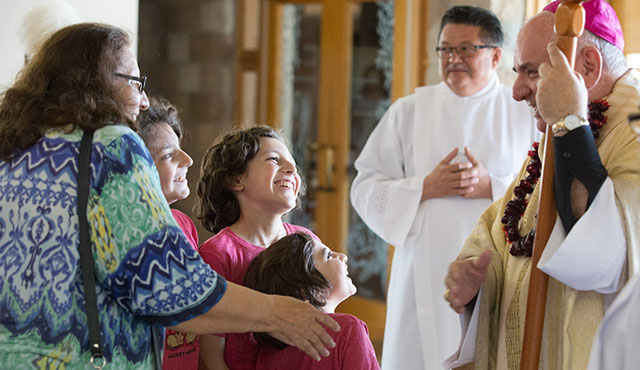Meg Jay, author of “The Defining Decade,” claims that “our 20s are the defining decade of adulthood. Eighty percent of life’s most defining moments take place by about age 35. … Personality can change more during our 20s than at any other decade in life. … When it comes to adult development, 30 is not the new 20.”
Pope Francis has called a synod on “Young people, faith and vocational discernment” to discuss how the church can help young people live their faith “through a series of choices that find expression in the states of life.” In short, the synod wants to help young people live out their vocation to holiness as lifelong adult Catholics by learning how to discern God’s will in daily life.
In the U.S., it is taking young people longer to get to that “adult” stage of life. Growing up with “helicopter parents,” the 2008 financial crisis and skyrocketing college debt means that for many young people, delaying adulthood is less a choice and more the hand they were dealt.
This requires a new pastoral approach to support this population.
Yet the Catholic Church in the U.S. has been slow to respond to the reality of emerging adulthood. The last parish touch point for most Catholics is confirmation around age 13, and for a small percentage, youth ministry programs through age 18. The next sacramental touch point is marriage, with little to no pastoral outreach for the defining decade in between.
Young adults in this crucial period of life are searching for belonging, identity and mission. Without mentors to teach them or a peer community to belong to, young adults often view the church as irrelevant and look outside of it for meaning.
When parents see that ministry does not exist for their kids, they advocate, but when young adults don’t find a relatable community, they walk away quietly. The rapid disaffiliation of young adult Catholics is a resounding clamor that something has to change.
One danger is that we default to what is most familiar or who is advocating the loudest. Too often writers and church leaders have made the mistake of calling the upcoming synod a “synod on youth,” when in reality, in our American vernacular, it is more accurately a “synod on young adults.”
This is not to say that ministry with youth is not important; it is essential. The danger is when the priorities of parish life build a child-centric culture instead of a culture of adult formation, mentorship and family life. The result is that when youth become young adults there is often no peer community to help them grow and no older adult mentors to walk with them.
The reality of delayed adulthood requires that parishes realign priorities to invest in a lifelong ministry bridge from high school and college across the defining decade of young adulthood. It is no longer sufficient to walk young people to the threshold of adult faith, but to accompany them through it.
Young adults today are navigating a defining decade of life with great hopes, big questions and constant transitions.
What can parishes do?
First, listen to the needs and interests of young adults through one-on-one conversations or listening sessions.
Second, invite young adults to represent key leadership areas of parish life.
Third, build friendship into all touch points of parish life that continue beyond the celebration of the sacrament.
Fourth, mentor a young person or young couple. Everyone, no matter their age, can reach out and invest in mentoring someone else.
Last, offer small groups as young adult or intergenerational formation.
The church has some of its own defining decades ahead of it. We would do well to turn our attention to young adults in their own defining moments.

